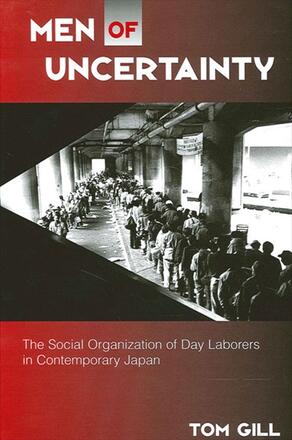
Men of Uncertainty
The Social Organization of Day Laborers in Contemporary Japan
Alternative formats available from:
A fascinating exploration of the subculture of Japanese day laborers, whose lives depart radically from the traditions of stability Westerners associate with Japan.
Description
Men of Uncertainty presents an unknown side of Japanese society—the world of Japan's day laborers (hiiyatoi rodosha), the urban labor markets where these men gather to find work (yoseba), and the cheap lodging districts where many of them live (doya-gai). Nearly every major Japanese city has a yoseba. These are centers of proletariat culture in the heart of the postindustrial metropolis, similar in many ways to the prewar American skid row. Within these districts, day laborers tend to live outside the two dominant institutions of contemporary Japanese society: the nuclear family and the company.
Focusing mainly on the day-laboring district of Yokohama, and with extensive comparative ethnography from five other cities, author Tom Gill finds a society of men who have opted out of the regular, communal way of life. This book details their libertarian, egalitarian lifestyle, oriented to the present yet colored by an awareness that in Japan today being a yoseba man usually means exclusion from mainstream society, absence of family life, and a career that can easily lead to homelessness and an early death on the street.
Tom Gill is Associate Professor at the Institute of Social Sciences, Tokyo University.
Reviews
"The topic is important because it illustrates one of the little-known underlying bases of Japan's huge economy, as well as internal contradictions in Japan's supposedly smooth-running society, and Japan's poor record at handling specific social problems. The writing is elegant and crisp. The topic is fascinating. The author knows the subject extraordinarily well, and has organized his material into a truly fine book. " — Roman Cybriwsky, author of Tokyo: The Shogun's City at the Twenty-first Century
"This is an important book, comprehensively treating a stratum of Japanese workers who have not yet been thoroughly described in an English-language monograph. It will make a major impact. " — Gary P. Leupp, author of Servants, Shophands, and Laborers in the Cities of Tokugawa Japan